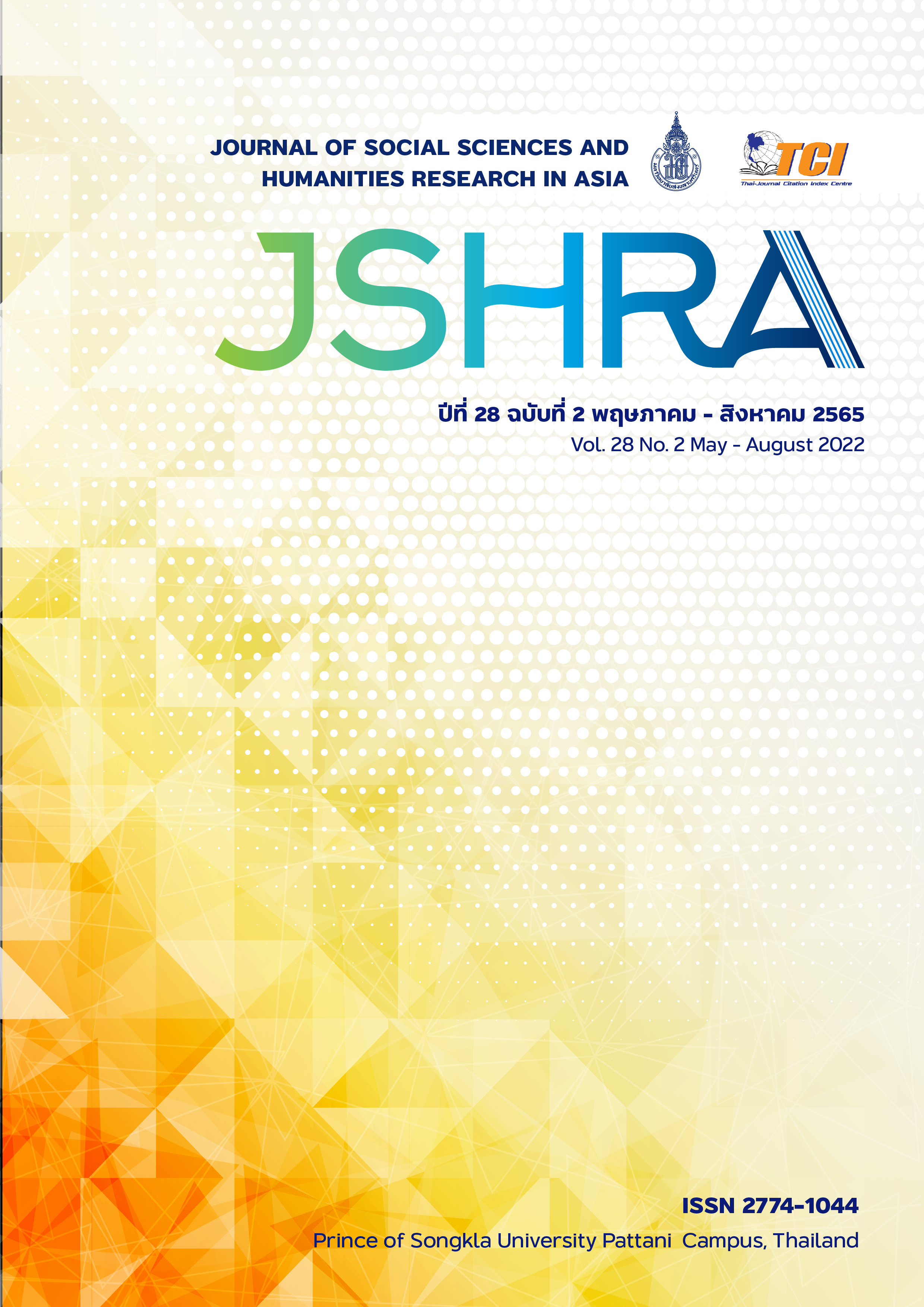Global Competence Matters-An Analysis of System Education Leaders in Alberta, Canada
Keywords:
Global Competence, Global Competence Aptitude Assessment, K-12 Education, System Education LeaderAbstract
In this study, the overall research objective was to examine the relationship between the global competence aptitude levels of Alberta system education leaders (N = 42) and their implementation of student global competence programming. Employing a pragmatic paradigm, and mixed- methods research design this paper reports on the quantitative study portion. Using the standardized Global Competence Aptitude Assessment, the scores of educational leaders (N = 13) from two systems with student global competence program implementation as a strategic priority were compared to the scores of educational leaders (N = 29) who served as a control group. An independent statistician completed the data analysis, based on eight
demographic variables, using Welch’s t-test. The overall results showed no statistically significant differences. However, there was a positive association for participants who were male, possessed Canadian citizenship, were of European ethnic heritage, spoke multiple languages, held doctoral degrees, had fewer years of work experience, travelled more extensively internationally, and interacted more frequently interculturally. The most compelling finding was that whereas the overall GC levels of the system education leaders from the two school systems with GC programming as a strategic priority were not statistically significantly different from one another,
the overall GC levels of the system education leaders from these two school systems were
both higher than those of the control group. These differences were statistically significant and were most evident on the external readiness scale. The study findings support that external factors such as broad cultural knowledge and interpersonal skills and attitudes acquired through increased intercultural experiences play a critical role in GC development.
References
AFS Global Conference. (2018). 2018 AFS global conference | Global competence: Our future, our responsibility. Retrieved February 6, 2021, from https://conference.afs.org/2018-afsglobal-conference/#afs-nav-programme
Alberta Education. (2011). Framework for student learning: Competencies for engaged thinkers and ethical citizens with an entrepreneurial spirit. Retrieved February 18, 2021, from https://open.alberta.ca/publications/9780778596479
American Council on International Intercultural Education. (1996, November 15-17). Educating
for the global community: A framework for community colleges [Paper presentation]. The Stanley Foundation and the American Council on International Intercultural Education Conference, Warrenton, VA, United States. Retrieved February 4, 2022, from https://www.stanleyfoundation.org/publications/archive/CC2.pdf
Ananiadou, K., & Claro, M. (2009). 21st century and competencies for new millennium learners in OECD countries (OECD Education Working Papers, No. 41). Canada: OECD Publishing.
Asia Society & Organisation for Economic Cooperation and Development. (2018). Teaching for global competence in a rapidly changing world. Retrieved February 18, 2021, from https://www.oecd-ilibrary.org/docserver/9789264289024-en.pdf
Chang, C. (2002). Assessing and developing global competence: A Japanese case study. Kyoto: Ritsumeikan Asia Pacific University.
College of Alberta School Superintendents Act, 2021, Chapter C‑18.8. Retrieved February 18,
, from https://www.qp.alberta.ca/1266
Cortes, C. (pseudonym). (2021, 25 August). Personal Communication. Interview.
Cosmo (pseudonym). (2021, 15 June). System Education Leader. Interview.
Council of Ministers of Education Canada. (2016). CMEC pan-Canadian global competencies descriptions. Retrieved January 4, 2022, from https://www.ontariodirectors.ca/CODETLF/
docs/tel/PanCanadian_Global_Competencies_Backgrounder_EN.PDF
Council of Ministers of Education Canada. (2018). Pan-Canadian systems-level framework on global competencies. Retrieved July 8, 2020, from https://www.globalcompetencies.cmec.ca/global-competencies
Council of Ministers of Education Canada. (2021). Measuring up: Canadian results of the OECD
PISA 2018 study: The performance of Canadian 15-year-olds in global competence. Retrieved February 1, 2022, from https://www.cmec.ca/Publications/Lists/Publications/Attachments/419/PISA2018_GC_Report_EN.pdf
Creswell, J. (2009). Research design: Qualitative, quantitative, and mixed-methods approaches.
(3rd ed.). Los Angeles: Sage Publications.
De Sousa Santos, B. (2007). Cognitive justice in a global world: Prudent knowledges for a decent
life. Washington: Lexington Books.
Dressler, R., & Shultz, R. (2021). Exploring the global competence of teachers and students: The
impact of diversity, classroom pedagogies and teacher professional learning. Canada: Werklund School of Education, University of Calgary; Centre for Global Citizenship and Research, University of Alberta.
Fidel, R. (2008). Are we there yet? Mixed methods research in library and information science. Library and Information Science Research, 30, 265-272. https://doi.org/10.1016/j.lisr.2008.04.001
Finnish National Board of Education. (2015). Learning and competence 2025. Finland: Government
of Finland.
Friedman, T. (2005). The world is flat 3.0: A brief history of the twenty-first century. New York: Picador.
Global Competence Associates. (n.d.-a). Assessment. Retrieved November 18, 2021, from https://
globallycompetent.com/assessment/
Global Competence Associates. (n.d.-b). Global competence model. Retrieved November 18,
, from https://globallycompetent.com/
Government of Alberta. (2018). Superintendent leadership quality standard. Retrieved February
, 2022, from https://education.alberta.ca/media/3739619/standardsdoc-sqs-_faweb-2018-02-02.pdf
Greunke, E. (2010). The global project: Observing geographic literacy obtained by study abroad learning. Retrieved January 4, 2021, from https://digitalcommons.wku.edu/theses/201/
Hunter, W. (2004). Knowledge, skills, attitudes, and experiences necessary to become globally competent. Retrieved August 16, 2021, from https://globallycompetent.com/gcpublications/
Hunter, W., White, G., & Godbey, C. (2006) What does it mean to be globally competent? Journal
of Studies in International Education, 10(3), 267-291.
Lambert, R. (1996). Parsing the concept of global competence, educational exchange and global
competence. Council on International Educational Exchange.
Mansilla, V., & Jackson, A. (2011). Educating for global competency: Preparing our youth to engage the world. Asia Society. New York: Asia Society.
Meng, Q., Zhu, C., & Cao, C. (2017). Chinese international students’ social connectedness, social
and academic adaptation: The mediating role of global competence. Higher Education, 75, 131-147. https://doi.org/10.1007/s10734-017-0129-x
Mignolo, W. (2011). The darker side of western modernity: Global futures, decolonial options.
Durham: Duke University Press.
Naffziger, D., Montagno, R., & Montag-Smit, T. (2015). Global competence and 2014’s college of
business student. Journal of Higher Education Theory and Practice, 15(3), 51-64. http://www.na-businesspress.com/JHETP/NaffzigerDW_Web15_3_.pdf
National Education Association. (2010). Global competence is a 21st-century imperative. NEA
Education Policy and Practice Department, Center for Great Public Schools.
Olsen, C., & Kroeger, K. (2001). Global competency and intercultural sensitivity. Journal of Studies in International Education, 5(2), 116-137. https://doi.org/10.1177/102831530152003
Ontario Ministry of Education. (2017). Framework of global competencies. Queen’s Printer for Ontario.
Organisation for Economic Cooperation and Development. (2017). How’s life, 2017. Canada:
OECD Publishing.
Organisation for Economic Cooperation and Development. (2018). Preparing our youth for an
inclusive and sustainable world: The OECD global competence framework. Canada: OECD Publishing.
Polit, D., & Beck, C. (2012). Nursing research: Generating and assessing evidence for nursing practice (9th ed.). Philadelphia: Lippincott Williams & Wilkins.
Reimers, F. (2010). Educating for global competency. In Cohen, J.E., & Malin, M.B. (Eds.), International perspectives on the goals of universal basic and secondary education. Oxfordshire: Routledge Press.
Schenker, T. (2019). Fostering global competence through short-term study abroad. The
Interdisciplinary Journal of Study Abroad, 31(2), 139-157. http://files.eric.ed.gov/fulltext/EJ1235438.pdf
Schleicher, A. (2020). Are students ready to thrive in an interconnected world? The first PISA
assessment of global competence provides some answers. Canada: OECD Publishing.
Shams, A., & George, C. (2006). Global competency: An interdisciplinary approach. Academic Exchange Quarterly, 10(4), 249-256.
Singapore Ministry of Education. (2010). Framework for 21st-century competencies and student
outcomes. Retrieved January 23, 2022, from http://www.moe.gov.sg/education/21cc/
Stankovska, G., Dimitrovski, D., Memedi I., & Ibraimi, Z. (2019). Ethical sensitivity and global competence among university students [Paper presentation]. 17th Annual International Conference of the Bulgarian Comparative Education Society, Pomorie, Bulgaria. Retrieved January 9, 2022, from https://eric.ed.gov/?id=ED596917
Statista. (2022). Social media usage. Retrieved February 6, 2022, from https://www.statista.
com/statistics/272014/global-social-networks-ranked-by-number-of-users/
Statistics Canada. (2021). Canada tops G7 growth despite COVID. Retrieved February 18, 2022,
from https://www150.statcan.gc.ca/n1/daily-quotidien/220209/dq220209a-eng.htm
Stearns, P., (2008). Educating global citizens in colleges and universities: Challenges and opportunities. New York: Routledge.
Swiss Consulting Group. (2002). Global competence report. Retrieved December 14, 2022, from
http://www.swissconsultinggroup.com/global competency.php
Trimble, J., & Chin, J. (2019). Exploring culturally diverse leadership styles: A mindset and
multicultural journey. Social Behavior Research and Practice, Open Journal, 4(1), e1-e2. https://doi.org/10.17140/SPOJ-4-e005
Wilson, M., & Daltron, M. (1997). Understanding the demands of leading in a global environment:
A first step. Issues and Observations, 17(1-2), 12-14.
Zhao, Y. (2010). Preparing globally competent teachers: A new imperative for teacher education.
Journal of Teacher Education, 61(5), 422-431. https://doi.org/10.1177/0022487110375802










